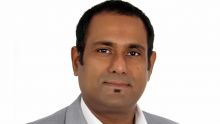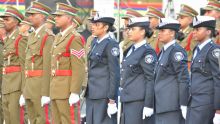
The country’s parastatal bodies have been in the limelight recently, albeit for the wrong reasons. Issues regarding the way these government agencies are run have been subject to criticism following the dismissal of Mr Megh Pillay as Chief Executive Officer of Air Mauritius, last month.
Publicité
Parastatal bodies are owned partly or fully by the central government but which are supposed to run as independent entities. During recent times, the way in which these entities are run and governance issues at their helm have been the subject of criticisms. Although this phenomena is not a new occurrence, it raises serious debates within society regarding the way in which good governance is practised behind the closed doors of those agencies.
The sudden dismissal of Mr Megh Pillay from the national flagship carrier Air Mauritius has opened debates on the governance of parastatal bodies. This episode was followed by a similar happening at the Central Electricity Board, where its General Manager, Mr Sham Thanoo, was relieved of his duties in an equally unexpected way. The relations between the Management and Board of Directors are at strain and there seems to be an overlap in the respective roles of both types. The government, at the beginning of its mandate, expressly defined the roles of both categories to prevent any conflicts. In practice however, it is a different story.
The government relies upon its appointees sitting on the Board of Directors of different organisations to carry out its defined policies. The government being the ultimate decision maker given that it is mandated by the population to run the affairs of the country, and by extension, entities mandated to carry out State-related affairs. However, the level of autonomy in decision-making by the management of those entities remain a crucial issue given that they still have to make good use of public money.
Over and above issues, regarding governance, the financial situation of parastatal organisations is a major concern and to address that issue, the central government has rolled out policies for major bodies, such as the MBC and CWA, among others.
Former head of civil service Mr Kris Poonoosamy explains that there exist a series of parameters regarding the operational aspects of parastatal bodies. According to him, the main parameters include: legislation, staff structure, appointment of the CEO or director, the board and financial resources to allow the parastatal bodies to carry its activities.
“One of the most important elements is good governance. People should be able to work in a conducive atmosphere for decision making. One of the first weaknesses is the legislation itself. Parastatal bodies should not be run the same way as it has been done since years now, as many developments have taken place. It is time to review the legislation and high officials in the parastatal bodies should propose legal amendments which will be in line with the reality and possible future development,” he says.
Staffing issues
Another weakness as highlighted by Kris Poonoosamy is staffing. “Each parastatal body should aim at getting best human resources. Besides, political appointment should be carried in a substantiated manner. Parastatal bodies should not be a dumping ground for unreturned candidates or political activists. Appointments should be done according to the best norms. Concerning the appointment of the Board of Directors, the Chairman is a political appointee but he/she must have all the required qualifications. The constitution of the Board determines the future of the organisation. In some cases, some of the Board members do not have effective participation and no proper contribution to the organisation,” he avers.
As stipulated by the former public officer, another weakness is that parastatal bodies do not undertake to evaluation. “The question remains who will evaluate these organisations? Any parastatal body or government owned organisation should have a culture of reform. Reform should be ongoing. The board and management should respect code of ethics and good conduct.”
According to Mr Poonoosamy, there are no clear demarcations between the CEO and the Chairman. “In every piece of legislation, the role of the Chairman and the CEO is clearly defined. Each parastatal body should abide by what is written in the legislation. The Board’s responsibility is more about policy decisions and the management is entrusted the responsibility to implement the decisions. There maybe problem of perception or problem in difference of opinion but this can be accommodated by enlightened vote. Many times people at this level do not see in the same direction. However, the code of good governance provides for mediation to take place.”
Deepak Benydin, tradeunionist: “Employees are scared of losing their job”
Deepak Benydin reveals that there is some kind of confusion prevailing in parastatal bodies for two obvious reasons. Firstly, as he observes after the budgetary measures announced, many people are confused about the merger of different organisations. “Employees are scared of losing their jobs. This is one kind of conflict that exist. A High Powered Committee needs to be set up to redress the situation. For better efficiency, public-public partnerships are necessary,” he underlines. Commenting on the recent upheavals within various parastatal bodies, he says that the Chairman should not interfere in the daily running of an organisation. “The Board should review only the policies while the CEO should deal with the daily operations of the institution. There should be the least interference of the Board or political nominees. We have also witnessed unexplained redundancy in various bodies. There should be Parastatal Bodies Commission to cater for the proper functioning of the institution. The Commission should be impartial.” He further adds that mismanagement prevails in some parastatal bodies. “Parastatal bodies should be headed by intellectuals and people who know how manage an organisation to prevent mismanagement. Efficient people should be given the job.”

Notre service WhatsApp. Vous êtes témoins d`un événement d`actualité ou d`une scène insolite? Envoyez-nous vos photos ou vidéos sur le 5 259 82 00 !





















![[Document] 12-Mars : découvrez la liste des décorés de la République](https://defimedia.info/sites/default/files/styles/medium/public/120316_decore-700x600.jpg?itok=NGE-1AJD)







